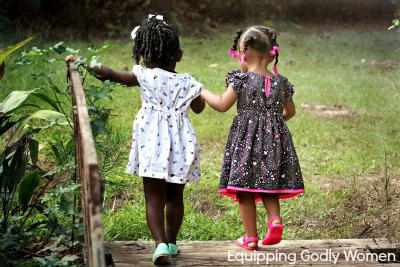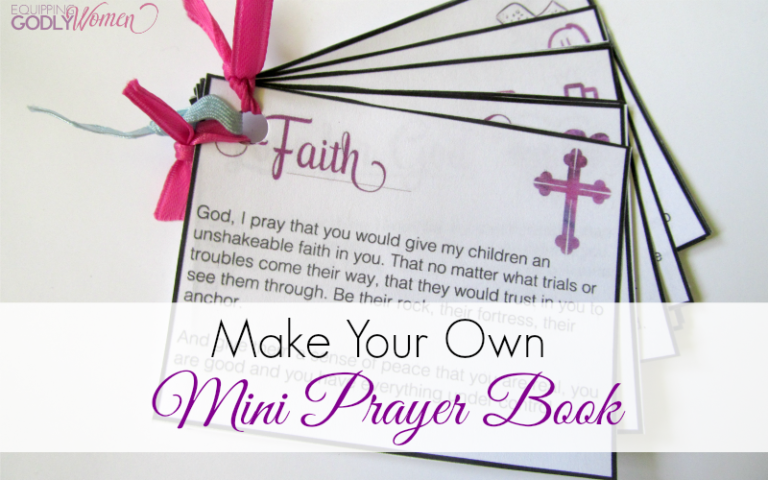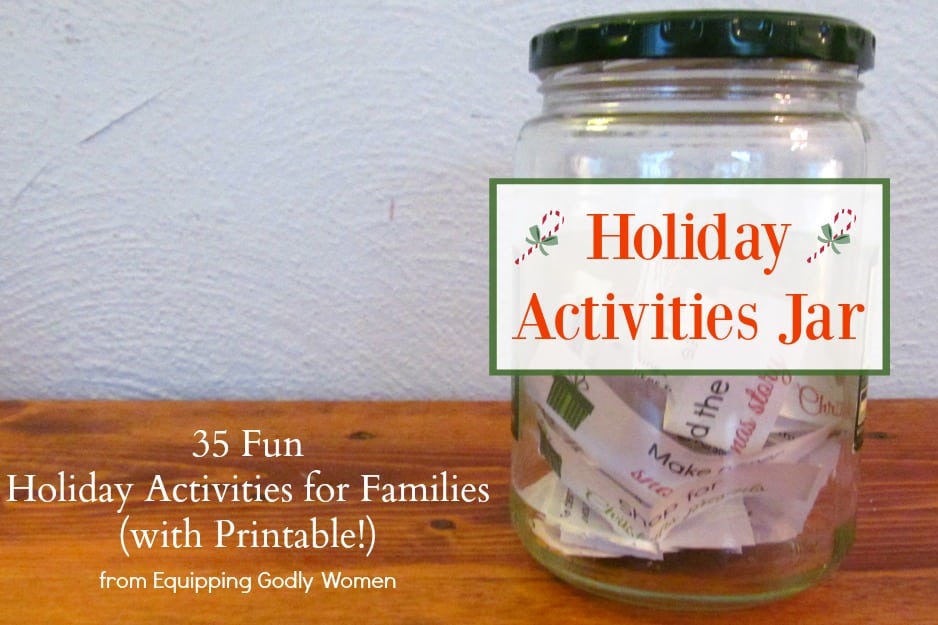Four Ways to Raise Children Who are Truly Grateful

It happens quite by accident. No one means for it to happen. And yet it happens to the best of us.
We work hard to give our children the very best childhood possible, only to realize one day that our kids have developed a self-centered, entitled and ungrateful attitude.
Maybe it’s the Christmas list that’s three miles long, the tantrum at the grocery store, or the endless stream of demands… there’s no limit to the ways our kids can be self-centered, entitled and ungrateful.
Thankfully, however, there are also plenty of ways to raise children who are truly grateful. Here are four.
Related: Three Habits of Families Who Raise Thankful Kids
[thrive_leads id=’23168′]
1. Insist On Good Manners
Having good manners isn’t just polite. It’s also a way to express gratitude and appreciation. Consider the difference between the demand “Give it now!” and the request “May I have it, please?” The first is entitled and self-centered; the second acknowledges the other person and the fact that the object requested isn’t just a given.
Children as young as one or two can learn please and thank you. Older children can write thank you notes. While these actions might not mean much to them at first, helping your children establish good manners at an early age will lay a strong foundation for gratitude down the road.
2. Don’t Be Afraid to Say No
There’s nothing wrong with wanting to give your children good things, but the fact is that the more “stuff” kids have, the less grateful they tend to be. When kids get everything they ask for, they expect to get everything they ask for. Whether your child is asking for candy in the check-out line, new shoes at the mall or dessert before dinner, don’t be afraid to say no. Receiving gifts should be an exciting and special event, not an expectation.

3. Give Them Plenty of Opportunities to Serve
It’s hard to focus on all the things you don’t have when you are busy serving people who have far less than you. Rather than lecturing your children about gratitude, give them plenty of opportunities to serve others and let experience be the teacher. Insist that your children help around the house, and take them into the community to serve others as well.
(Not sure how your children can serve? Here’s a list of 9 Service Projects Even Preschoolers Can Do.)
4. Model a Life of Gratitude Yourself
The most important way you can raise grateful children, however, is to model gratitude yourself. Do you always remember to say please and thank you? Do you regularly show your family how much you appreciate them? Do you point out to your children the ways in which God has provided? Or are you constantly complaining and always buying more, more, more? Get in the habit of being truly thankful yourself, and your children are sure to follow suit.
Raising children who are truly grateful isn’t easy, but with these four tips, a little love and a lot of patience, it can be done!
[thrive_leads id=’23168′]
Are your children starting to get the holiday season “gimmes?” What do you do to teach your children to be grateful for what they have?
Like what you read? I bet your friends would too! Don’t keep this great resource all to yourself! Use the links below to share on your favorite social media channels. Your friends will be glad you did 🙂








We go through phases. Unfortunately my first grader’s friends have rubbed off on him, and my fourth-grader is in a testing period of her life.
But just when I want to give up hope, a little glimmer of awesomeness and giving shines through.
Oh no! That’s one of the reasons we felt it necessary to put my son in a private, Christian school. Some of the kids around here are awful! (Not saying that everyone needs to do the same, of course!)
Sadly, not even Christian school protects you from it all.
Don’t tell me that! I like my bubble!
Thanks for this reminder! Number 2 has definitely gotten away from me. I need to say no more. I think lately I have just not wanted to deal with the battle so I have been giving in. What is saving me a headache is actually teaching them the world revolves around them and they are the only ones that matter. I always thought I wouldn’t be that mom that gives in, but what do you know… I’m thankful fresh starts 🙂
I know what you mean! There are definitely times when I haven’t felt like dealing with it either. Which then promptly leads to a “mommy boot camp” (which isn’t nearly as scary as it sounds, lol), where we go right back to following the rules and expectations. Kids go in phases… parents can too, right?
I hate hearing “I want.” My children are/were made to rephrase the sentence with “It would be nice to get.” It made me more grateful. lol
lol!
I totally know what you mean. We don’t really do Christmas at our house, but this same entitlement behavior can linger all year long depending on the child. We have six, so I try to super extra vigilant with the oldest three right now to help them understand that they are leaders and examples in this family, like it or not. We have a lot of discussions about behaviors and their long-term ramifications if they are not addressed. Motherhood is surely one big spin cycle, repeating the same conversation over and over until really sinks in. Great post and food for thought
I really appreciate number 1. Pinning it!
Thanks! I appreciate it!
Yes to all your points. I think too often people wait until a child is older and by then some bad habits–that maybe once seemed “cute”–have set in.
Agreed! I know some of those behaviors are cute (and my toddler does get away with some things now he won’t later), but why teach them to behave one way, only to later flip the tables and expect something else? It’s easier to start when they are little. (And it’s fun too)
I sometimes fear that my kids will grow up ungrateful. We live in a country that has so much. We are blessed in ways they take for granite. I really liked this post. Thank you for your wise thoughts!
I think we all do! (and I’m sure they all WILL at least a little bit!)
I think it’s useful to include kids in grocery (and other) shopping. We routinely have discussions with our children about which products are on sale, and which products we won’t buy because they aren’t on sale. Our kids see us making these decisions – both with household products and with things we want for ourselves. Sometimes I wonder if kids are ungrateful because, in their eyes, Mom and Dad just buy whatever they want; so when kids see you compromise with what you buy, they realise that they aren’t the only ones missing out.
I am a huge believer that allowances help teach gratitude too. I know this is a very controversial topic; but we give our kids a small allowance, and we almost never hear “I want” because our stock-standard answer is, “Well, save your allowance.” They learn about budgeting; they learn that things cost money and that that toy they want is X number of weeks’ allowance – and often that makes them realise they’d really rather have another toy, that won’t take so long to save up for. They also learn the joy that comes from saving up to buy something. My daughter saved up for months to buy a telescope. It wouldn’t have meant as much to her if we’d just forked out the money for it; but because she had to save up for it, it was something really special and spectacular.
That’s a great argument for allowances. I don’t think we’ve decided one way or the other, but I imagine we’ll probably do them. Do you connect yours to chores or just give your kids a set amount every week? My son understands that we have to work to get money, but he hasn’t yet grasped how much work equals how much money. He once brought me a handful of change and said “Here you go mom! Now you don’t have to work anymore. I’ve got money!” It was adorable!
Look, everything about allowance is controversial and I’m not trying to start an argument or say what we do is the best – I really don’t know. For us, we tie it to chores and to staying in bed. Our kids are bad sleepers, always have been, and would be up a 5 every morning without any problems at all. So they get 20 cents a night for every night they go to bed without hassle, sleep by themselves all night, and don’t get up before 6. It’s pure bribery but it’s well worth 20 cents a night for us to be able to sleep through until 6! They also get $1 a week for making their bed 7 days a week and another $1 week for tidying up the house every night before bed. We’re pretty slack at enforcement; we give them a free pass on the bed and tidying up before we start to knock off money; and if they come down to use the toilet or something we don’t really knock off money because, hey, it’s better they do that than wet the bed, right? At the same time I won’t offer them a bigger allowance until they master the chores they have now, and do them without reminders or complaint – then we’ll add more chores and more money; but we aren’t there yet. We also didn’t start allowances until after they had an understanding of basic math. I think that’s pretty important; if they don’t understand addition and subtraction they won’t understand what it is to save up for something. My husband’s an accountant and teaching the kids financial responsibility is a pretty big deal to him; he figures it’s pretty hard to learn to be responsible with your finances if you never have money.
My kids are really very appreciative. I don’t know how much of it is because of allowances and how much is because of other things. We’ve travelled to quite a few developing countries, so they’ve had the experience of playing with street children and seeing poverty up-close. It’s difficult to see; but that’s also led to conversations about homelessness and food insecurity and what we can do to help. We sponsor children who share their birthdays with our children, which gives them another connection to poverty and allows us to talk about the things we take for granted, that the sponsor children just don’t have. We always practice gratitude when we open presents – even if it’s something we know they hate, we still make a big deal over it and talk about how wonderful it is that Great-Aunt Mildred thought about them, and we always do thank you cards (or at least thank you e-mails). We also don’t watch a lot of commercial TV. We live in Australia, which means the kid’s TV shows are all on a non-commercial station, which makes it easier – they don’t see ads so they aren’t always asking for things. Advertising is devised to make you feel inadequate; take that out of the equation and it’s much easier to feel gratitude.
Don’t worry. This is a super non-confrontational site 🙂 I think I’ve had ONE mean comment EVER, and it wasn’t even really mean, lol. I was just curious to hear about what you do. Sounds like you have a great system, and it sounds like you’re doing lots of things to help your kids be grateful. Especially seeing third world countries–that must really bring the message home. We talk about people who don’t have homes, but my kids have never really SEEN anything themselves. And yes, commercials stink. Thank goodness we don’t watch as much TV anymore.
I loved this article. You know…I don’t give my kids opportunities to serve people that have less than we do. I do myself, but never thought about how important it is to include my children in those things, instead of just telling them about them. Actually including them in the task. Great idea!
Well, I have to admit that a big part of the reason why my kids DO help is because I can’t seem to go anywhere without them tagging along 🙂 But even if I could, I still love having them there with me. It really brings whole new meaning when you have to explain what you are doing and why in kid-friendly terms.